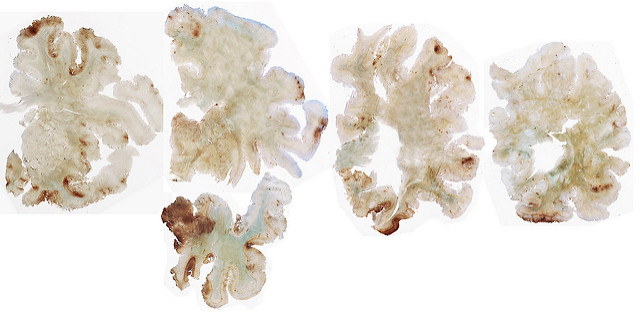Concussion is big news in the Sports Medicine world, and for good reason. This brain injury is commonly sustained during sport and is characterised by diffuse axonal damage. In the short term, concussion can be debilitating, with memory loss, impaired coordination and nausea. Patients may develop post-concussive syndrome. In the long term, multiple insults contribute to chronic traumatic encephalopathy (Punch drunk dementia), with high mortality and morbidity.
Whilst visiting the spinal unit I noticed that patients with nervous system injuries were being prescribed magnesium. In preclinical models magnesium is suggested to be a neuroprotective agent. It is thought to reduce cell death secondary to excitotoxicity.
This triggered a thought: Can we take magnesium from the hospital bed to the pitchside as a viable treatment option in concussion or TBI?
Unfortunately my theorising didn’t turn out to be so easy!
There’s a Cochrane review of Mg and TBI that explains some of the proposed benefits however it concluded there is insufficient evidence in humans.
This NAP text focuses on nutritional strategies and TBI – also explaining the proposed mechanism of Mg reducing excitotoxicity and secondary cerebral insults – It lists many studies. (There is also a page on ketones and TBI if this interests you).
Unfortunately this paper includes both haemorrhagic and ischaemic strokes in their analysis, as well as other aetiologies of brain injury. I think this dilutes the evidence as TBI/concussion is characterised by diffuse brain injury and swelling with secondary injury which resembles more of an ischaemic injury, compared to a haemorrhagic injury.
Looking through the studies listed in the NAP paper that are specific to ischaemia and TBI:
– In ischaemic stroke a lower Mg level is correlated with lower GCS and more mortality (Bayir, 2009)
– Patients with low Mg have a worse outcome at 6 months after severe TBI (Stippler, 2007)
– In rats, high dose magnesium reduces AQP4 expression in brain tissue after acute injury. This aquaporin channel mediates water flow across cell membranes and increase after brain injury – suggesting a reduction in oedema and inflammation. The rats given magnesium also showed recovery, whilst the non-treated group didn’t. (Ghabriel 2005)
– In rats again, Mg treatment reduced neuronal loss and improved working memory after trauma. (Enomoto 2005)
There are a few more rat studies and they have positive outcomes – but they are rat studies!
There’s an absolute ton of research across many fields that may hold future relevance; e.g. in neonates, low Mg correlates with impaired brain metabolism in hypoxic-ischaemic injury.
Even if Mg had an effect, how do we get it to the brain?
Gut —> Blood —> CSF —> Therapeutic effect.
To get into the body, magnesium is eaten as part of a normal diet and is found in many foods. The gut finely controls the amount of magnesium absorbed to maintain the amount in the blood, and the kidneys control how much magnesium is lost in urine.
If serum (blood) levels are high, the gut absorbs less and the kidneys lose more, suggesting a strict upper limit that the body will hold at one time.
The magnesium in the blood must cross over the blood-brain-barrier (BBB) to enter the cells of the brain. Just as the gut finely controls the passage of magnesium, the brain is even more strict. Studies that have given patients IV magnesium have increased serum magnesium, but have not affected brain levels. They have bypassed the gut, but can’t get past the brain.
Therefore, IV magnesium probably won’t raise CSF levels rapidly enough or to a therapeutic level after an initial traumatic insult.
However, we may be able to change the absorption of magnesium across the BBB by pairing Mg with another agent – This newer study used magnesium and mannitol together and found it raised CSF levels more effectively than Mg alone.
This new approach suggests that if we can increase brain concentrations of magnesium with additional agents, we may see better therapeutic effects in the future. http://www.ncbi.nlm.nih.gov/pubmed/20129501
In summary so far; Acute TBI in humans doesn’t show a clear-cut response to IV magnesium therapy. With developments in the delivery method of magnesium, perhaps future studies will show better results.
Does this mean that magnesium is meaningless? Although its efficacy is not proven in the acute scenario, could there be benefit to monitoring magnesium status over a long term period?
Magnesium is used commonly because of its other benefits to athletes:
– Muscle soreness and recovery
– Exercise performance
– Mood and cognition
Perhaps an alternative approach a health team could employ would be to identify magnesium deficiencies treated with appropriate supplementation. This approach could reap marginal gains in other areas of performance, whilst providing a theoretical buffer to prevent brain damage after trauma.
——
Not a doctor
